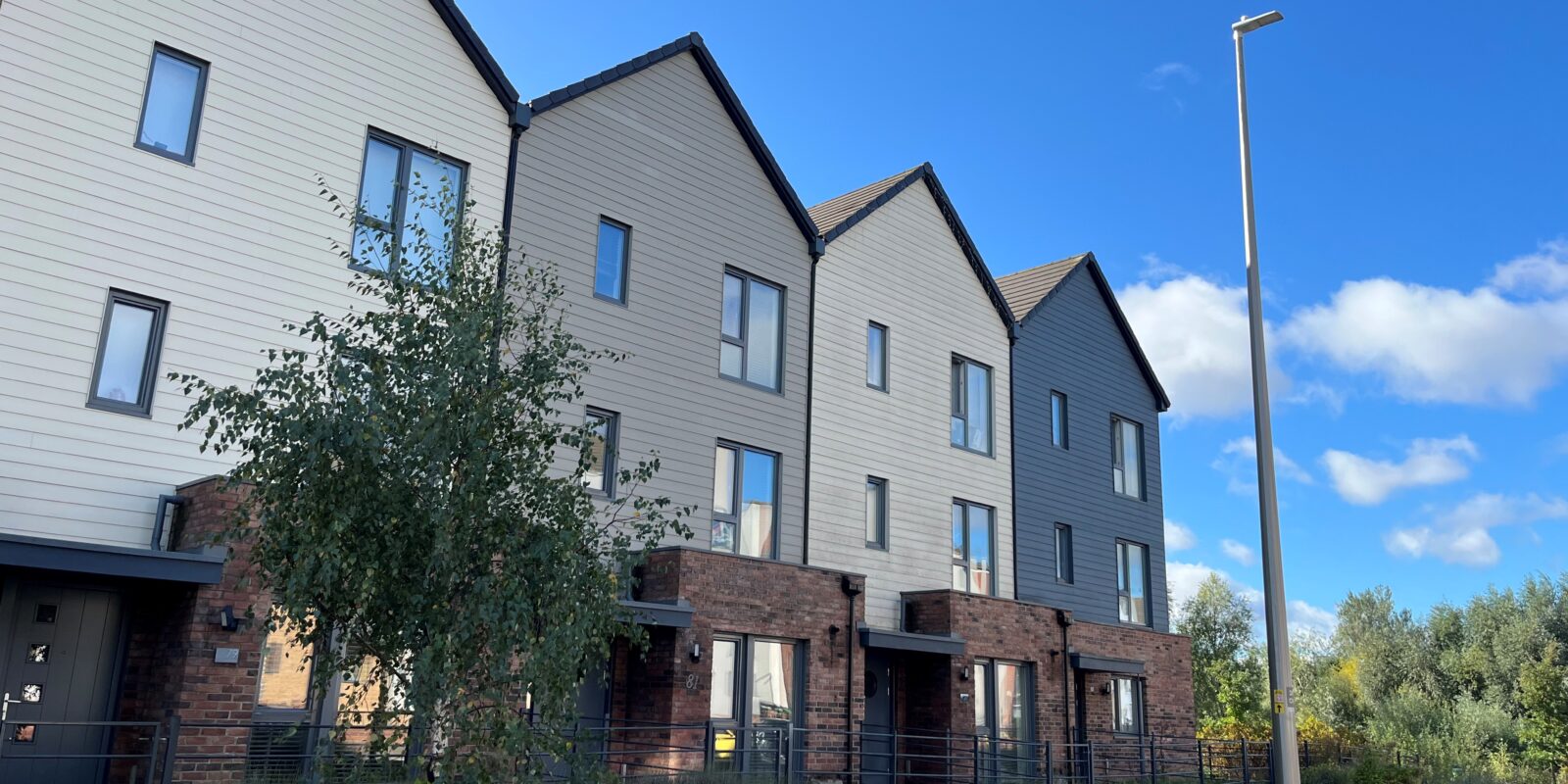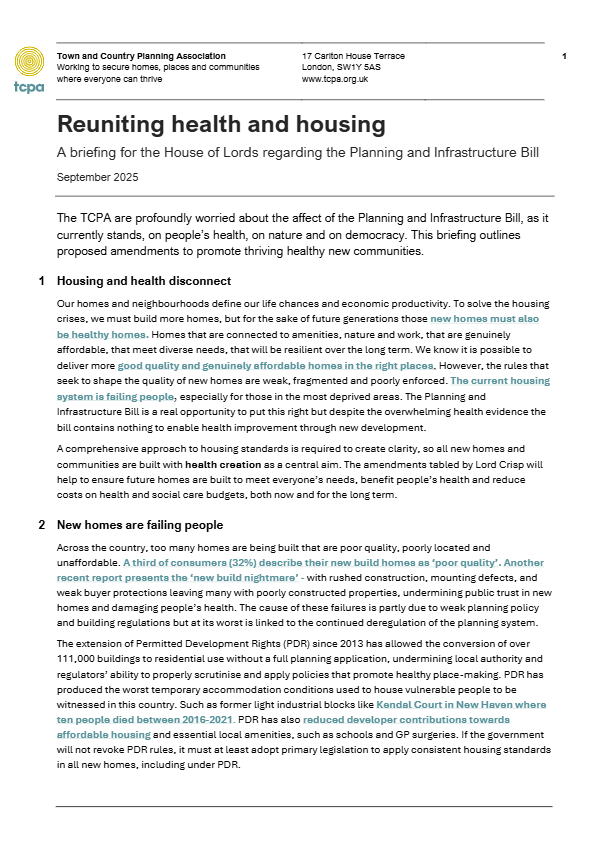A briefing for the House of Lords regarding the Planning and Infrastructure Bill (September 2025)
Our homes and neighbourhoods define our life chances and our economic productivity. To solve the housing crises, we have to build more homes, but for the sake of future generations we have to build those homes well. New homes must also be healthy homes. Homes that are connected to amenities, nature and work, that are genuinely affordable, that meet diverse needs, that will be resilient over the long term. However, the current housing system is failing to promote people’s physical, mental and social health – especially for those in the most deprived areas.
The Planning and Infrastructure Bill was a real opportunity to put this right but despite the overwhelming health data, the bill contains nothing to enable health creation in new development. A comprehensive approach to housing standards is required to create clarity, so all new homes and communities are built with health creation as a central aim.
The amendments tabled by Lord Crisp, particularly amendment number 226 regarding a new ‘Secretary of State’s duty to promote healthy homes and neighbourhoods”,- and supported by peers across the political parities – will help to ensure future homes are built to meet everyone’s needs, reuniting health and planning, and guarantee a new generation of healthy homes.
Lord Crisp has also tabled amendment number 185SZ, regarding ‘Planning authorities: duty to promote health improvement and reduce health inequalities“. This applies the same health obligations to strategic authorities in the Devolution and Community Empowerment Bill, including regarding housing standards.
Baroness Thornhill has also tabled an amendment (number 134) calling for Permitted Development Rights (2015) to be repealed – which currently allows the conversion of buildings to flats and dwellings, outside of the full scrutiny of planning and building regulation and has produced some of the worst examples of housing.


